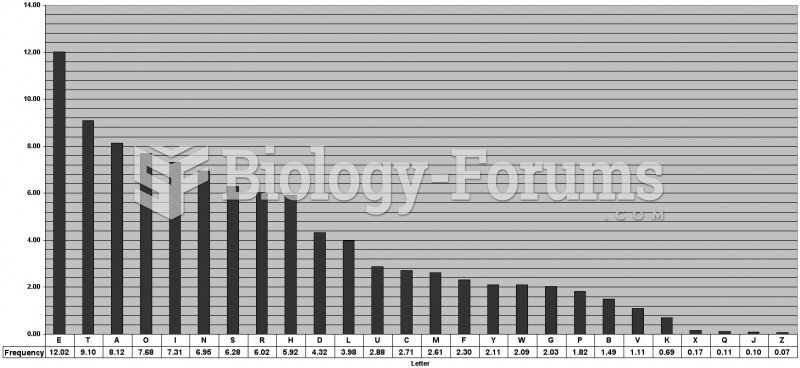|
|
|
Adult head lice are gray, about ? inch long, and often have a tiny dot on their backs. A female can lay between 50 and 150 eggs within the several weeks that she is alive. They feed on human blood.
Bisphosphonates were first developed in the nineteenth century. They were first investigated for use in disorders of bone metabolism in the 1960s. They are now used clinically for the treatment of osteoporosis, Paget's disease, bone metastasis, multiple myeloma, and other conditions that feature bone fragility.
The human body produces and destroys 15 million blood cells every second.
There are 60,000 miles of blood vessels in every adult human.
More than nineteen million Americans carry the factor V gene that causes blood clots, pulmonary embolism, and heart disease.







